Amazing Nomads: Joel de Carteret – From Foundling to Filmmaker
Found wandering alone aged five in a busy market in the Philippines, Joel de Carteret was taken to an orphanage and given a new name, new date of birth and a new family in Australia.
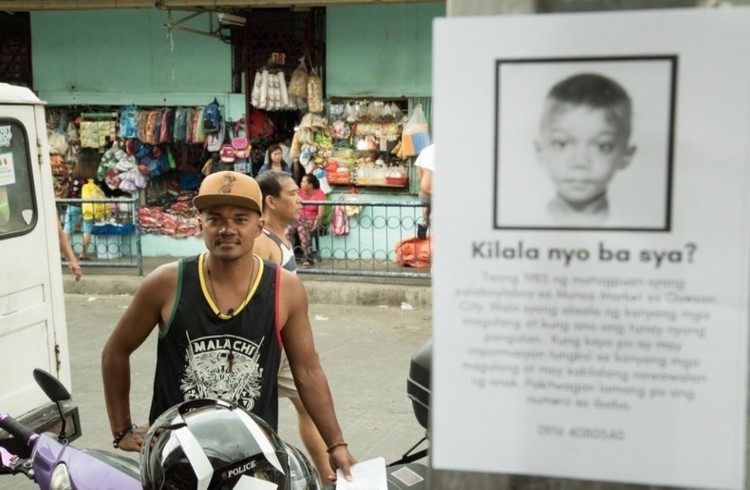 Photo © Supplied
Photo © Supplied
Listen Now
Amazing Nomads: Joel de Carteret
Joel de Carteret was aged five when he was found hopelessly lost in Munoz Market by Jose Manselo, a taxi driver who took him to the local police station. Joel was later sent to an orphanage for kids and after a number of media attempts to trace his parents, he was classified “abandoned” and eligible for adoption.
What’s in the episode
00:58 Hopelessly lost
02:26 The search for Joel’s mother and father begins
04:35 What did Joel remembered about his parents?
07:25 Going back to the orphanage
09:55 Finally, some help
12:22 “Naturally I am just a wanderer.”
13:28 Meeting his dad for the first time
16:21 Joel’s relationship with his two Mums
18:28 It’s not a fairy tale ending
Quotes from the episode
“I was headed into the police station, and when they asked what my name was, I couldn't tell them, and when they asked what my parents' name was, I couldn't tell them either.”
“When a child is found with no name and or no identification in the Philippines, they are named as foundling.”
“I always felt like I was Australian, and I was white on the inside, and it took me a while to figure out or to accept the brown face that was looking back at me in the mirror.”
Who is in the episode
Joel de Carteret was five years old when he became hopelessly lost from his mother after wandering in to a bustling city market. Joel was taken to the Reception Centre for Children (RSCC), an orphanage for kids, after numerous media attempts to trace his parents through radio failed.
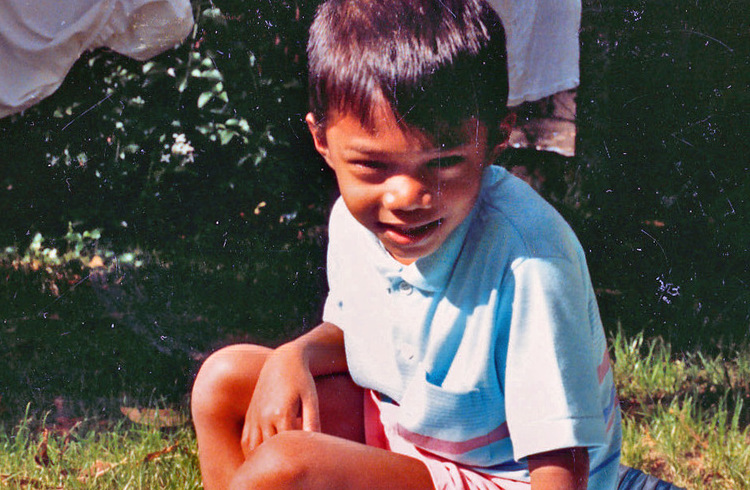
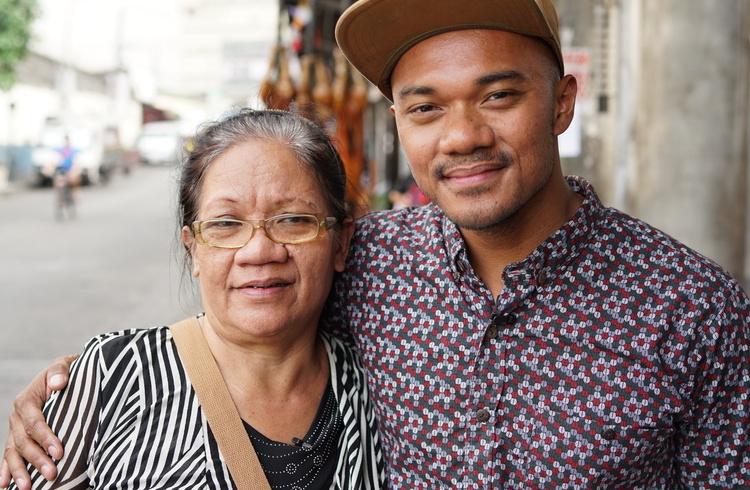
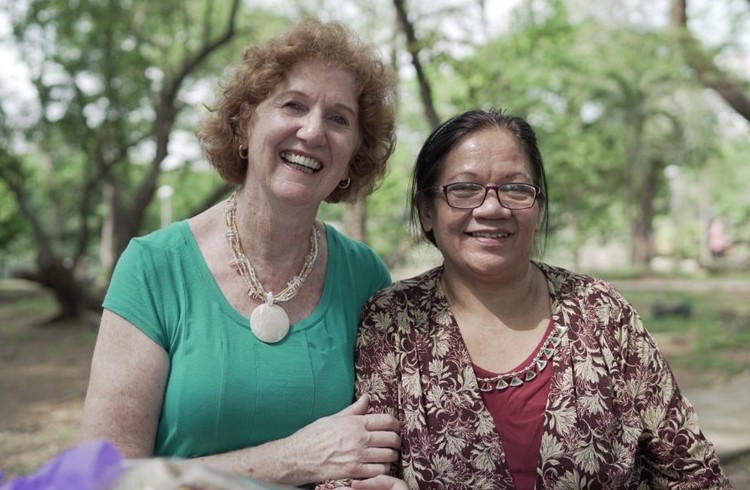
Read more about his story here.
Joel is the founder and chief storyteller at Stories in Motion, a boutique film production company
Joel is a masterful storyteller who weaves narrative, music, and beautiful pictures into an emotive, motivational speaking experience.Resources and links
Scholarships Newsletter: Sign up for scholarships news and see what opportunities are live here.
Want to republish this episode?
<iframe src="https://webplayer.whooshkaa.com/episode/417353?theme=light" height="190" width="100%" scrolling="no" frameborder="0" allow="autoplay"></iframe>
Next Episode: South Africa
About World Nomads & the Podcast
Explore your boundaries and discover your next adventure with The World Nomads Podcast. Hosted by Podcast Producer Kim Napier and World Nomads Phil Sylvester, each episode will take you around the world with insights into destinations from travelers and experts. They’ll share the latest in travel news, answer your travel questions and fill you in on what World Nomads is up to, including the latest scholarships and guides.
World Nomads is a fast-growing online travel company that provides inspiration, advice, safety tips and specialized travel insurance for independent, volunteer and student travelers traveling and studying most anywhere in the world. Our online global travel insurance covers travelers from more than 135 countries and allows you to buy and claim online, 24/7, even while already traveling.
The World Nomads Podcast is not your usual travel Podcast. It’s everything for the adventurous, independent traveler. Don’t miss out. Subscribe today.
You can get in touch with us by emailing podcast@worldnomads.com.
We use the Rodecaster Pro to record our episodes and interviews when in the studio, made possible with the kind support of Rode.
Speaker 1: The World Nomads Podcast bonus episode. Hear amazing nomads sharing their knowledge, stories, and experience of world travel.
Kim: Thank you for tuning into this episode featuring the face of our U.S. Discovery series, film maker, Joel de Carteret. And a warning, it may elevate emotions, particularly for any listeners who may have been adopted, as this is about Joel's heartbreaking journey from being found wandering in a market in the Philippines, to being adopted by an Australian family.
Phil: Wow. For those of you who know the story of Saroo Brierley, an Australian man who at age five was accidentally separated from his biological mother, was adopted by an Australian couple in Tasmania, and 25 years later reunited with his mother after finding his hometown via Google Earth. Then you'll be glued to Joel's story, too.
Kim: Yeah. Joel was also five, can you imagine it, when he became hopelessly lost from his mother after wandering into a bustling city market.
Joel: I was found at the age of five at a busy market in the Philippines. I was headed into the police station, and when they asked what my name was, I couldn't tell them, and when they asked what my parents' name was, I couldn't tell them either. When a child is found with no name and or no identification in the Philippines, they are named as foundling. I was taken to an orphanage where I was given a new identity, given a new name, and given a new date of birth.
Kim: Before we get into that, does your story resonate with that of Saroo Brierley?
Joel: Yeah, yeah. It's obviously a different story. I was found in a different situation, and the way that I found my parents was through my skill set as a filmmaker, and just taking time off and going over and just doing my own search. When I found out about Saroo and found out about his story, it was incredible to know that he had found his parents. I think it was a seven-year period just going through Google Earth. Then when I looked at my sort of own sort of backstory, I was like, "Man, I don't have seven years to find my parents." I just really just took time off work, and used my skill set as a filmmaker, and was able to find, miraculously, find my birth parents with a lot of help from people on the ground and the Filipino community.
Phil: Tell us the rest of your journey that led up to that moment, where you are a filmmaker and you've got those skills. What was that journey?
Joel: Yeah. Yeah. I was adopted when I was six years of age by Australian parents, and they brought me over to Melbourne where I grew up. Yeah, growing up was quite interesting. On the surface level, I adapted pretty well, considering being in a whole different culture and in a foreign place. I know at one stage growing up, I asked my mother whether I'm going to turn white or not. And yeah, it was an interesting experience.
Joel: I think what kind of led me to the filmmaking was through dance. I found my solace through dance. I was just really heavily involved in the arts, and that's what kind of drew to me as a kid.
Joel: My mom is a Caucasian redhead, so it was always quite confusing when people would come over, and they were expecting a Filipino parents, but they found, they saw, just a normal Aussie parents at home. On the surface level it was ... I always felt like I was Australian, and I was white on the inside, and it took me a while to figure out or to accept the brown face that was looking back at me in the mirror.
Joel: I think it was difficult to navigate. In my teens, every sort of few years I'd sort of open up my adoption papers to look at where I'd come from and what happened, and it was always the same scenario, where my adoption papers would say that I had no name. I didn't know the name of my parents. Even though the area where they lived, I only knew that my mother was a dressmaker and my dad was a jeepney driver, and I was found at Munoz market in Manila, population of 100 million. Every time I opened those adoption papers, it was always like, "Ah, there's no point in even looking for them." Because I didn't even know where to start.
Phil: That's a 100 million to one shot. Yeah.
Joel: Yeah. And then, I guess what a lot of people don't talk about being adopted is just some of the, I guess some of the relationship issues that you have. It's hard to feel safe in relationships, because you always feel like there's ... at some point someone's going to leave you. It's all kind of like ... Later, in my late twenties, in my thirties, that was quite a sort of a pattern that I was going through. I think when I was 35, it was this sort of pattern that was constantly repeating, and I wasn't really able to fully be vulnerable with someone and fully let them in.
Joel: It was only when I went to Thailand, and I was shooting a documentary series for charity over there called Hands Across the Water, I had this really, really profound interaction with an orphan boy. We were telling stories around this charity that did a lot of work with orphans, and that brief interaction that I had with him while he was reading a book in English, we kind of spent some time together. He just reminded me of myself, and he kind of reminded me about going back to my own orphanage.
Joel: That's when it kind of really started, and that's when the idea of like, "Oh, maybe I should go back. Maybe I should go back to my orphanage and meet the orphans, and just reconnect with my culture." There was never really straight away going back to find my parents. I knew it was impossible. I just went back there with the notion of trying to reconnect with my Filipino roots and reconnect with my orphanage. Then when I got over there, it all kind of, yeah, it all just snowballed.
Kim: You decided that you would visit the reception center for children, the RSCC, which is the orphanage that you were found at. Well, you weren't taken there. You were taken by a taxi driver who found you to a police station, which wasn't the right environment for you, so they took you to the orphanage. Okay, so you went back there as a grownup.
Joel: Yeah. I mean, I went back to the orphanage, and I met the kids there, and it was a very different experience when I went back when I was 18. This time, I think one thing that I really noticed was that a lot of the kids weren't just Filipino. There were a lot of mixed races there. So, half Filipino, half African, or half Filipino, half ... There was all these half, half, half ... half Chinese. And so it just made me really sad that those people are coming into the country and having children with Filipinos and then leaving, and then these kids end up in the orphanage. That was one of the things that really stuck out at me.
Joel: But one of the reasons why I went back was to kind of look at my adoption papers, and was praying that there was maybe a mistake or was praying that there was more information that I wasn't given. And when I looked at my papers, it was all the information that I already knew.
Joel: I decided to go back to the market where I was found. I would have gone back there when I was 18, but my mother wouldn't let me, because she thought that was unsafe. At 35, I can look after myself.
Joel: I bought a lot of clothes from the local market, so I dressed like a typical Filipino, and just walked around with a translator at the market asking questions. I was there for a couple of weeks nonstop, and we were able to find a couple that had lost a child around about the same time at the market. Long story short, we found this, the mother, and she thought it was me, and so we did a DNA test. A few weeks later, it came back negative.
Joel: But what that snowballed was the interest of a local network in the Philippines. Because, I presented them with the story and also with a lot of footage that I'd captured over the month and a half I was there doing my own research. Prior to that, when I asked them, when I was approaching networks, they wouldn't take on my story. Because, I think, just purely that I didn't have any leads, and it was just a dead end story for them. But after I found this couple, they decided to help me, and they saw that I was a filmmaker and I had shot a lot of my own footage, and was making my own documentary about it.
Joel: They published the first episode on GMA for a show called Jessica Soho. After that first episode released, someone who was originally living in the house that I walked off from saw my story in Japan on cable and contacted me and the network, and said that that's Joel. That's how you say it in the Philippines, Joel.
Kim: Right.
Joel: She said that, "I know his mother, and I was babysitting that little boy when he was five years old." You know?
Kim: Obviously, didn't keep it a-
Phil: Not a good babysitter.
Kim: She didn't keep an eye on you.
Joel: Yeah. Obviously, she wasn't doing her job that day.
Kim: No. Exactly.
Joel: Yeah. That's when I started to find out what the story was. Because, my own version of what I remembered was that I'd wake up and my mother was missing, so I went to look for her. That's how I walked off from the house, and walked for a bit, and got lost. Then it was just like I was walking for the whole day til I was found.
Joel: When I found ... Her name was Dolly, or is Dolly ... When I found Dolly in Japan, who used to live in the house, she said that my mother would always take me to work every day. But that morning I was still sleeping, so she just went to work and just told people in the house, because there was about seven other people living there, she told people in the house that, "I would come back at midday to pick him up, because he's sleeping." And then when she left, I kind of went to look for her. It was all this, growing up, you just, because you don't know what the truth is, you kind of, you have all these sort of scenarios or these stories that you kind of think about, or you make up to try to justify what had happened.
Phil: For all these years leading up to that, you have this sense that you'd been abandoned, and then you find out you actually did a runner.
Joel: I did a runner. Yeah. [crosstalk 00:12:13]-
Phil: How did that change your attitude to it all?
Joel: Yeah. Well, it's such an interesting experience, especially with the World Nomads series, is that I think naturally I'm just a wanderer. I like to wander, and get lost, and explore places. Well, when I was five years old, I wandered off from home. Now I'm 38, and I'm wondering the planet. Yeah. It's interesting. It's an interesting perception that I've kind of realized now over the last ... Because that happened about two and a half years ago. Since then it's just this crazy experience of adjusting and integrating her back into my life.
Kim: What about your dad?
Phil: Yeah. Yeah.
Joel: My dad. Yeah. I actually found my dad before I found my mom, simply because we found someone in the area that was really good friends with my dad, and so he remembered his last name. Once we knew his last name, we looked him up on Facebook. He wasn't on Facebook, but one of his sons was on Facebook, so, I contacted him on Facebook. We organized a Skype. Met my dad for the first time on Skype. So, I actually found my dad before I found my mom.
Joel: And reason why I found him before was that we never knew ... We could never find my mom's real name or her last name til we had found Dolly. Even Dolly, in Japan, didn't know her last name, either. We were just going by a first name and a picture. What we thought was going to be easy after that was still a good two months in finding her. If you don't have a name or a last name, it's very difficult to get records in the Philippines.
Kim: Saroo's mother, back to the story of Saroo Brierley, she refused to move home, to move house, just in case Saroo came home.
Joel: Hm.
Kim: What happened to your mother, and then what was the reunion like?
Joel: Well, my mother moved and she remarried seven years after I was lost. I'm not sure how long she stayed at that place, but I know that when I went missing, the way that she had kind of come to terms with it was that she thought that my dad had taken me and taken me to the States. And so that was the story that she sort of went with to try to get some closure.
Joel: But when I found her, what she realized was that the orphanage that I was living at was only a couple of Ks away from where she was living. And so, when I went missing, the common question people are asking is, "Why didn't your mother look in an orphanage?" When I went missing, she looked everywhere for me. She approached the media, she went to radio stations, she went to a bunch of ... She did a bunch of things. But what the belief back then for her was that she thought that kids who ended up in orphanages were kids that weren't wanted. She didn't know kids that-
Phil: Were lost, yeah.
Joel: Yeah, she didn't know that kids who got lost ended up in orphanages, too. She was just really beside herself when she found out, and I think she was really hard on herself, because she would have just thought, "Now, if I'd have just gone into orphanages," she would have found me.
Kim: What's the relationship like now with your biological mom and your adopted parents?
Joel: Well look, it's always been my adoptive mom growing up. My adopted dad left quite early in the picture. My mom, My adoptive mom, we've got a really, really strong relationship, and she's over the moon for me. She was quite worried at the start, but she's just over the moon that she got to ... One, I got to find her, and, two, she got to meet her. I took her back to the Philippines, and we had a mother to mother reunion thing on 60 minutes, which is online.
Joel: My mom's been to ... My biological mom, which I call ma, her name's Herminia, to be really honest, we've had our ups and downs. It's not a fairy tale ending that people think it is. It's like once you find your birth parents, then the journey just begun around integrating into your life, and how that works, and the cultural differences, navigating around the cultural differences. It's really challenging.
Joel: But overall, I've brought my biological mom to Australia, and she's seen my life. I remember when she was staying at my house, I just couldn't believe that my biological mom was just in the next room. Just, after 30 years of separation that she's now back in my life. We have the same humor. We have the same laugh. We look, I look a lot like my mom. There's just certain things that she said to me that just hasn't changed. You know? It's just really grounding for me to have known that, and can kind of get that complete in my past.
Joel: And now there's a new journey of through figuring it all out and also helping other people find their cultural roots, or help other people find their identity through my experience of finding my own roots. So yeah, it's been an incredible experience.
Phil: I think I'm feeling a little bit cheated right now, because I think we've just skipped over the bit ... I know I'm looking for a fairy tale here.
Joel: Right. Right.
Phil: The first time you met your biological mom. When you met Ma.
Joel: Yeah, look, look, the thing is I always try to get people to understand that it's not a fairy tale ending. There's no ending that happens when you find your birth parents. It's overwhelming. It's awkward. When I first met my mother, she wasn't what I expected or what I had in my head.
Joel: But to be held by your mother after 30 years, that means the world for someone like me who lost their parents when I was a kid. To see pictures of myself before I was five years old is also something that is quite moving for me.
Joel: I also didn't know my real date of birth. When I was growing up, the date of birth that was given to me, 4th of August, which was the official date where I was officially classified as abandoned and eligible for adoption. So when I found my ma, I found out where I was baptized, and I found out the hospital that I was born in. Getting my real date of birth, 10th of November, 1981, is something that for many people who are in my situation can really relate to, as far as that's a real cornerstone of understanding who you are and where you come from. I don't know if it's that fairy tale ending for you, but it's a big deal for any adoptee. I'm sure you know any adoptees around the world listening to this will be able to really relate to that finding.
Joel: She basically told me a story that was one of my only memories of growing up, was that she would bring me to work at the dress factory, and I would be playing with the cotton and the wool and riding my bike around the factory. And that, for me, that was the story that I always had in my head, and only one of the few memories that I had of her.
Kim: Well, Joel aims to use his story to bring awareness to adoption and is making a documentary he says he hopes will motivate others to write the blank pages of their own narrative.
Phil: But how amazing is it to speak to J.D., and it's not a Hollywood movie, it's real.
Kim: It's real, and like Saroo, it is absolutely real.
Phil: And look, as Joel says, he'll now forever wander the planet, and good luck to him, because there's lots to explore and a lot to love.
Kim: Yep. You can get the World Nomads Podcast from wherever you get your favorite podcasts. Subscribe, rate, share. We'd like you to tell your friends about us, because that's how we all share the love.
Phil: Yeah. All right, and don't forget, we've got our own Facebook page now, as well. The World Nomads Podcast on Facebook. We can all have a chat with each other, which would be quite nice.
Kim: It would.
Phil: Next week, we are off to explore the Caribbean or is it the Caribbean?
Kim: Oh, here we go.
Phil: Here we go. [crosstalk 00:21:37]-
Kim: Tanzania, Tanzania? Tomato, tomato? Bye.
Speaker 1: Amazing nomads. Be inspired.
Related articles
Simple and flexible travel insurance
You can buy at home or while traveling, and claim online from anywhere in the world. With 150+ adventure activities covered and 24/7 emergency assistance.
Get a quote

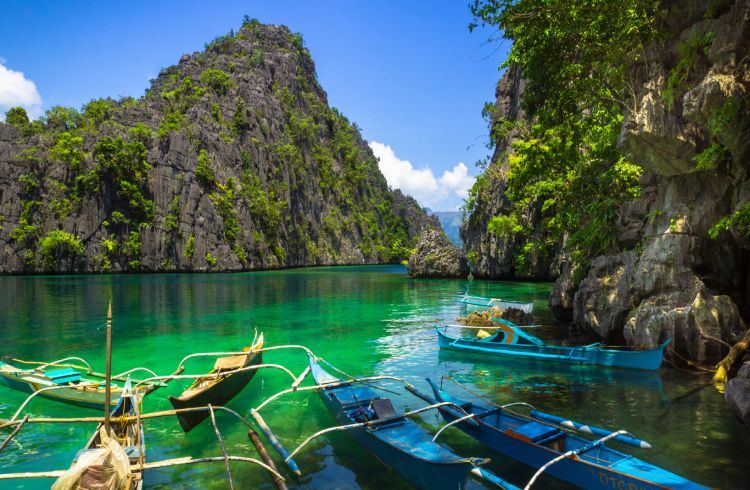
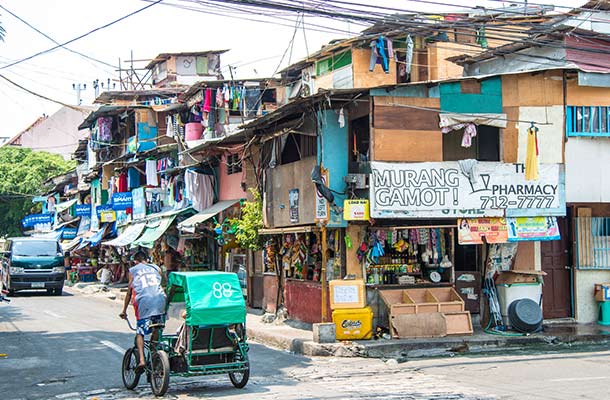
No Comments